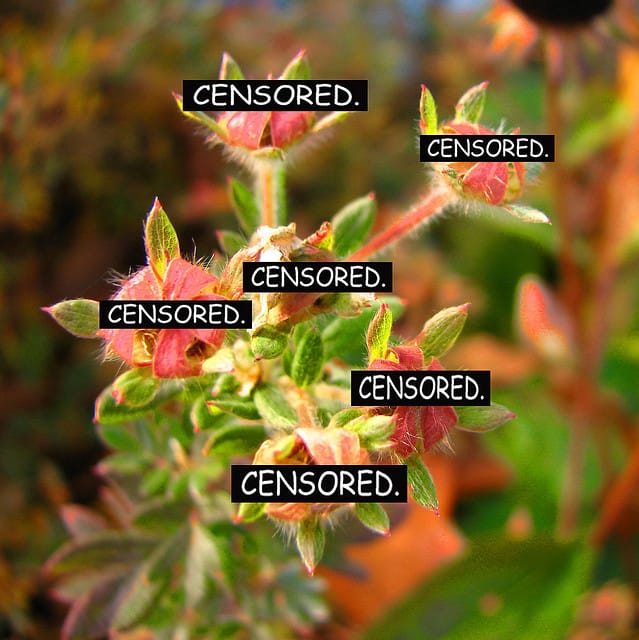‘You need to be careful… Some places put pressure on you to dress like a slut.’
This was an interjection by one of my followers on Twitter to a conversation about pole dancing. I have been taking classes for eighteen months now. Apprehensive at first, I have grown to love it. The booty rolls, the stripper grinds, virgin wiggles and dirty squats. I love it because I can see my progress each week, learning new tricks, climbing higher, growing stronger, and twisting my body in ways I never dreamed. I love it because I feel powerful and sexy.
In class, we are encouraged to let go, to get in touch with our sensuality and really amp up the sex. It’s liberating. Here we can grind and touch ourselves, walk in platform heels, and it’s routine.
At first, I hesitated. We all hesitated. Can we really move like that? Touch and flick and dip and roll like THAT? After a while, it became second nature. Learn this move and finish with a grind. Cat crawl on the floor, then helicopter kick to face the front. We talk about our ‘cookies’, joke about the dirty moves and their dirtier names, and it’s fun and easy.
Do I feel like a slut? Sure. And I’ll wear the label with pride. Do I feel like an athlete? Like a dancer and a gymnast? Absolutely. I can climb to the ceiling, straddle upside down and dangle from a single hooked knee.
‘It’s a bit trashy,’ said a friend, and from my sister: ‘It’s hardly mainstream,’ followed by, ‘you’re almost naked!’ ‘Of course,’ I replied, ‘I need bare skin to grip the pole,’ thinking, does it really make a difference if I’m wearing gym gear or booty shorts? If my sports bra has a crossed back or a halter? If I’m wearing heels or bare feet?
I’m 37 and I feel fit and strong and sexy and proud. Why would anyone ‘need to be careful’ about feeling this way? Should we be frightened of feeling empowered and confident at any age, shape or size, of embracing a style of dance that is sensual and sexy? Or is that how others fear we might feel?
Google ‘pole dancing’ and you’ll find a myriad of articles discussing whether pole is a legitimate form of dance, art or sport, with some arguing a need for dancers to perform sans heels, in ‘sports’ gear, and with all the grinding removed. Some even call it ‘pole sport’ or ‘pole fitness’ to distinguish it from its strip-club origins; as if only by removing the ‘sex’ can people see the skill, strength, or athleticism. For them the sexiness somehow alters and diminishes the quality of the performance. They don’t recognise that it takes ability and artistry to grind and wiggle and sex-up the moves.
This example might seem trivial, but it is indicative of a much broader issue, where society can view women as capable or sexy, but not both, in the same way society only views sex as legitimate when it is functional but not pleasurable.
***
Take another example. For the year and a half that I have been studying Sexology, I have regularly encountered the slightly embarrassed (but oh-so-curious) question, ‘What exactly is Sexology?’ It should be easy enough to answer, but I find myself fending off eyebrow raises by describing all the aspects of Sexology that don’t have much to do with sex. ‘It sits within a public health framework,’ I say. ‘It covers a range of health disciplines,’ and ‘We study forensics, research and clinical studies…’ I cite examples such as campaigns to reduce the transmission of STIs, programs with sex offenders, and counselling in HIV clinics: the un-sexiest examples I can think of.
In class, we pay lip service to the need to incorporate sexual pleasure in education and various health professions, but we don’t undertake the type of hands-on surveys and research done by the likes of Kinsey, Masters and Johnson. In fact, we don’t spend much time focusing on the pleasurable aspects of sex at all. Sexual dysfunction, yes; sex in target populations, such as the disabled or the elderly, yes; but it all seems deliberately bland, clinical, watered-down or framed as part of a human rights crusade. At times it feels like we focus as much as possible on the unsexy parts of sex — the only way to make what we do seem legitimate. And if you undertake any kind of ‘bodywork’ (or refer clients to those who do) you’ll find yourself without a professional membership.
What I have become more keenly aware of since undertaking this course is how few disciplines incorporate sex into what they do. Health care professionals rarely ask about our sexual health. Psychologists, social workers and counsellors shy away from discussing sexual needs with their clients, though sexuality has a huge impact on psychological wellbeing. Educators teach about the function of sex, of reproduction, and of infectious diseases, but ignore sexuality, sexual diversity, relationships and sexual pleasure, as though you can have one without the other.
Because sex is taboo in our society, it becomes taboo in everything. When was the last time your GP asked about your sexual wellbeing, whether your illness was influencing your self-image and ability to be intimate with a partner, or listened when you asked if your contraceptives might be affecting your libido? How many people’s GPs or psychiatrists warn them about the potential side effects on their sex drive or ability to achieve orgasm of the medications they prescribe?
‘I can’t get pregnant’ or ‘I think I have herpes’ — these are complaints health professionals can handle: concrete problems with concrete medical solutions. ‘I’ve lost my desire for sex’ is something else entirely, even if it has an underlying medical cause. Mostly ignored, or handballed, health professionals rarely see your sexual pleasure as a legitimate concern.
Men experiencing sexual dysfunction are likely to receive a more positive response because doctors can prescribe a little blue pill without having to explore anything too intimate, too taboo — even when the issue might stem from a non-organic cause, and because men are expected to view sex as important, a necessity. For women, sexual desire is discouraged or viewed as an optional extra, and so health professionals tend to greet complaints about sexual wellbeing with resounding silence. Even pelvic floor problems are likely to be treated in the context of functional incontinence rather than their impact on sexual pleasure. If it’s only your desire for sex, or your pleasure that’s suffering, that’s not our concern.
I can cite so many more examples across the spectrum of health, education, counselling and psychology where professionals consider sex legitimately within their duty of care only when it is a function. Sexual desire, sex for pleasure, for intimacy and for psychological wellbeing, is something they would rather not discuss, thank you very much.
***

Then there is the way the media approaches sex. As soon as you write or report on sex or relationships, people see you as covering the ‘soft topics’. It isn’t science or health or psychology, but ‘lifestyle’, as though sex and sexual partnerships are accessories, like a new car or holiday.
On the one hand, there is an editorial push to sensationalise, to find the taboo headlines, and so press releases about sex research certainly grab the media’s attention. However, the articles tend to be compiled by ‘lifestyle’ journalists who don’t necessarily know how to interpret the information presented, to question the scientific method, the generalisability of the findings, to know the difference between correlation and causation.
A recent example of this was a study that found frequent porn users had more grey-matter in their brains. Researchers found no causal link and their sample was not generalisable to the broader population, but the media happily cited that here was proof that porn damages brains. Porn might well damage brains, but this study did not provide evidence to support that claim.
On the other hand, you have the biases that exist in the research process. The sex research that receives funding typically supports a commercial interest, existing social norms, or has a sex-negative agenda. Then you have the problems inherent in researching a taboo, which means research findings are often not representative of the broader population. Selection bias is one issue. It takes a certain type of person to be comfortable answering questions or volunteering to participate in research about sex. Self-reporting bias is another — people are likely to represent themselves in line with societal expectations, even in anonymous surveys. Lastly, research design tends to conform to societal norms, which means research findings reflect the way the researchers framed their questions.
The result? The media publish sensationalised, inaccurate articles on how pornography affects the brain alongside listicles with titles like ‘69 Ways to Balance Cats on Your Breasts’.
In so many facets of our lives, it appears there is a chasm between the ways sex can be considered ‘legitimate’ and our actual experiences of sex for pleasure, for intimacy, for wellbeing, or for entertainment. In science, journalism and health, sex can be functional, for procreation, but anything beyond that is sidelined, labelled sleaze, an optional extra, or outside the bounds of concern. In art, sport or recreation, the sex must be removed entirely. It seems that sex can be functional and legitimate or it can be sexy and pleasurable, but never both.





